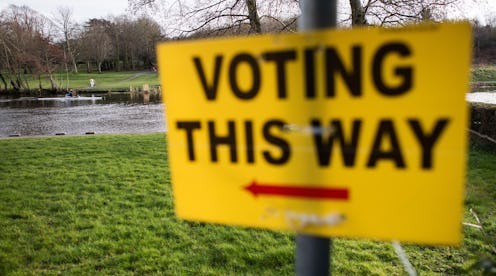News
The Super Tuesday Primaries – And The Caucuses
Super Tuesday is not the easiest political contest to wrap your head around. That's because there's not just one. It's the biggest day of the 2016 primary season. Candidates have been flying across the country trying to make the biggest splash they can in such a multitude of states holding caucuses and primaries. There are actually nine states voting in primaries and another four are holding caucuses. Then there's also the overseas U.S. territory of American Samoa holding a Democratic caucus, while Democrats Abroad is hosting a primary that begins today for expats registered as Democrats.
The states holding primaries are Alabama, Arkansas, Georgia, Massachusetts, Oklahoma, Tennessee, Texas, Vermont, and Virginia. Then as for states with caucuses, Minnesota is holding events for both parties; Colorado too, kinda. In Alaska and Wyoming, only the Republicans will be caucusing. The Democratic contests are held on different days.
In theory, the difference between a caucus and a primary is pretty simple. The easiest contest to understand is a primary vote. Much like a normal election, voters will head to the polls over the course of the day — polling stations open and close at different times in different states. They show up when they want and vote for their favorite candidate. In some states there are tricky rules that say only party members can vote in a primary, but others let you switch parties on the spot, and some let you vote on whichever ticket you like. Ultimately, though, you have to choose between voting for a Republican and a Democrat. You can't vote for one of each.
A caucus, on the other hand, is a bit more complicated. For one, requires everyone to show up at the same time. In Minnesota for example, the caucuses start at 7 p.m. local time (8 p.m. ET). Caucus-goers shouldn't be late because the process will start without them. You shouldn't have many excuses though. Unlike in some states, many school events are banned that night, and everyone has the right (by law!) to take off work to attend. Voting for candidates is usually done first, but then other party business must be seen to, like electing delegates to go to the convention.
In Minnesota, the same process holds true for both Republicans and Democrats. In Alaska, things will be a bit different this year, with the state GOP calling the contest it the Alaska Presidential Preference Poll. That's because it's a lot like a primary. There will be not be scenes like Iowa where voters stand in groups in a big gymnasium. Voting will take place over five hours and voters use a ballot and can come any time. The reason it's still being called a caucus is because the party runs it, not the state board of elections.
In some of the states and territories, the Republican delegates won't be decided quite the same way. Colorado and Wyoming's GOP parties took issue with new RNC rules that require delegates to be bound to the winner of the statewide vote in each party — be it a primary or caucus. Being bound would mean the delegates have to vote at the national GOP convention for the candidate they were assigned by the popular vote.
These two states, along with North Dakota, didn't like that and have decided to get rid of their caucuses and straw polls that would have recorded what the party members as a whole want. It's a workaround to keep the delegates unbound. In Colorado and Wyoming, caucus-goers will begin the process of electing delegates but not vote for their presidential preference.
In North Dakota, the delegates will ultimately be chosen at the state convention in April. Some calendars showed local legislative caucuses ending there on March 1, which led to them also being included in some Super Tuesday counts. Meanwhile there's a protest vote online poll. Guam and American Samoa's Republican parties are also skipping a vote (the reason only Democrats caucus there Tuesday).
Tuesday will see the largest number of delegates allocated in one day of voting this year. Perhaps even more important than how the voters vote is how the delegates are allocated. The Democrats version is more or less proportional, although congressional districts and other subdivisions like state senate districts often play a role. The GOP's rules, though, really vary. Look at Alabama for just one example. In the end, the delegates actually choose the nominee at the party conventions this summer. So as you're watching the returns, make sure to see how many delegates the candidates rack up — not just which states they win.
Sorry, I know, the process doesn't seem to get simpler. Hang in there, and take some notes for your viewing party Tuesday night.
Believe it or not, both primaries and caucuses can be laugh-out-loud hilarious. Don't believe us? Have a listen to Bustle's "The Chat Room" podcast...
